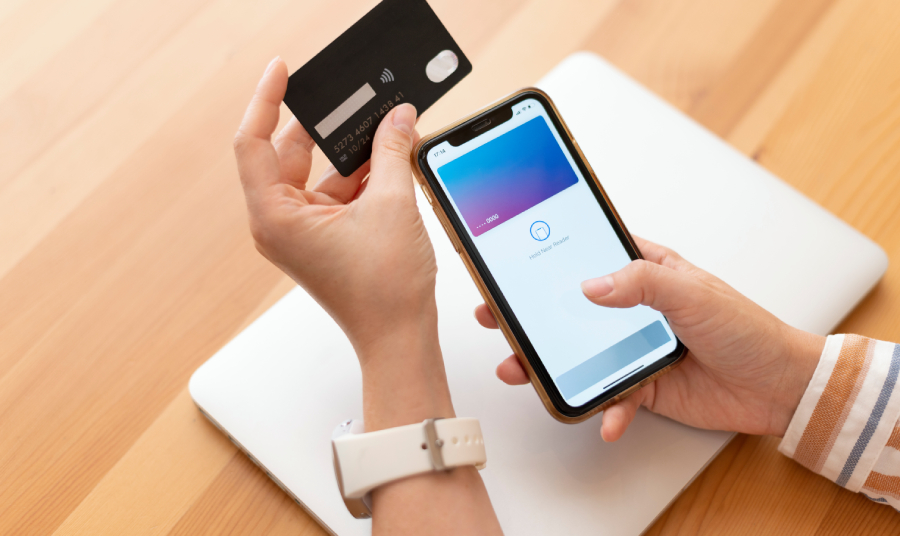Tips on receiving money from overseas
Many businesses worry about the costs associated with international transfers. Here, you can discover the best way to receive money from overseas.

International expansion is a dream for many successful US-based companies. International currency transfer fees, on the other hand, can be a nightmare — and so can determining the best way to receive money from overseas. Should you accept direct payments via your bank or use a third-party solution? Can you reduce costs from receiving money from overseas, or are they an inevitable part of cross-border trading?
In this article, we’ll concentrate on international payments made to your business by trading partners overseas. We’ll begin with a list of issues you might encounter when receiving international payments, and then we’ll compare a few of the most common international transfer methods.
Common problems with receiving money from overseas
International trade can be lucrative – but fees associated with currency transfers can quickly eat into your profits. When transfers are slow, they hamper business transactions and erode trust.
Other common problems with receiving money from overseas include:
- Payment tracking problems: unlike packages, international payments aren’t always easy to track. Sometimes, direct payments get caught in fraud-detection systems and aren’t released for days.
- Exchange rate premiums: exchange rates vary daily – but they only paint half the picture. Most banks and other currency exchange solutions charge a hefty premium over and above the spot rate.
- Identification issues: when international payments eventually arrive, they don’t always include payer information. If you frequently receive international transfers, the lack of payer information can make accounting harder.
- Serious delays: most international payments go through within three business days, but some take longer. Without the right payment partner in place, payments from, for example, the Chinese mainland, can take five or more business days to materialize.
- Missing payments: very occasionally, payments go missing entirely. Rerouting errors mean they are lost in the ether or the wrong account. Most missing payments eventually turn up – but they can cause serious anxiety.
Unfortunately, inflated exchange rates affect both parties in a transaction. When trading partners’ transfer-related costs go up, they feel less confident importing products, while exporters can end up with less working capital.
Requesting international payment
International business transactions like exports typically follow a similar structure. Negotiations between US-based exporters and overseas importers culminate in a contract describing the products or services for export. A proforma invoice follows, and – if applicable – manufacturing commences. When the order is ready, the exporter sends the overseas importer a commercial invoice and a bill of exchange.
The bill of exchange is a formal payment request – but payment often doesn’t occur until the exporter offers proof of shipment. If you ship the order via air or sea freight, you can prove shipment via a bill of lading, which you’ll receive from the carrier.
What are the best ways to receive money from overseas partners?
There are several ways to receive money from overseas business partners. Until recently, most international transactions happened via bank transfer. Now, there are viable cross-border currency exchange alternatives – some cheaper.
Bank transfers
Bank transfers are the “original” way to make and receive international payments, and they have pros and cons.
You’ll need to provide specific details about your bank account or banking provider to your overseas vendor so they can send you money. This can include your IBAN or your bank’s BIC code. From here, international currency transfers are usually sent via the SWIFT network.
Unfortunately, some US banks don’t use the IBAN system, which can make receiving money overseas more difficult. Similarly, bank and wire transfers are notoriously expensive because there are so many parties in the middle involved, which can mean unnecessary extra costs.
Cryptocurrency payments
Cryptocurrencies used to be the stuff of science fiction. Now, they’re much more widespread. On the one hand, cryptocurrency payments are borderless – there are no exchange rates, currency conversion, or other fees to consider.
On the other hand, cryptocurrencies are notoriously volatile, so your payment could be worth much less upon arrival than expected. Regulators in many countries have also expressed concern with the use of cryptocurrencies, creating further uncertainty.
Third-party payment solutions
Third-party payment solutions include companies like Zyla, which offer low-cost, flexible alternatives to bank transfers, while still leveraging the safety and security of major banking partners and the SWIFT network.
Using modern software designed for international payments, money that’s sent via Zyla arrives faster than bank transfers. Zyla even offers a specialized payments-from-China service, which can significantly expedite payments made to US SMEs from mainland China.
Zyla also integrates with banks across the US, meaning you can send and receive money to other bank accounts just as easily.
Zyla: The best way to receive money overseas
If you want to grow your business abroad by exporting or franchising overseas, a reliable way to send and receive money overseas is crucial. While bank transfers are an easy solution, their long-term costs can mean the difference between thriving and surviving in your new market. Furthermore, cryptocurrencies still lack the stability businesses need when working in different currencies, given their volatility and regulatory uncertainty.
The free-to-open Zyla Account enables businesses to make collections and payouts internationally – giving you the freedom to do business anywhere, all with the security of our online platform. Open an account today and you could be approved, set up and trading internationally in 24 hours. Get started or find out more by calling (855) 797-3366 today.



